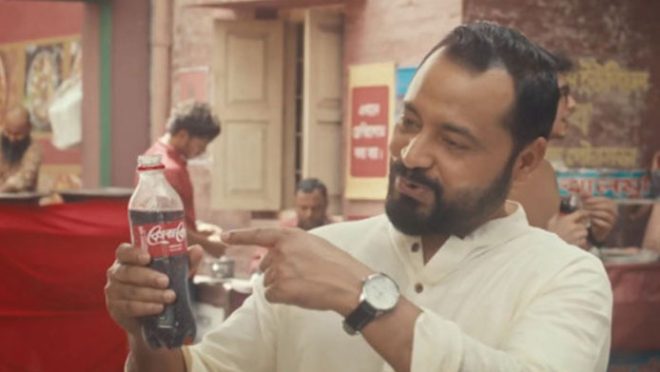Coca-Cola’s recent ad, a glaring misstep in marketing?
Coca-Cola’s recent ad, a glaring misstep in marketing?

“Open Happiness” with Coca-Cola? It’s been a big deal in marketing for ages, the marketing textbooks are filled with examples of how Coca-Cola is classic in marketing strategies. For more than a century, Coca-Cola has been able to stay popular and adapt to the change, all the while maintaining its nostalgic appeal.
Coca-Cola’s marketing strategies have evolved over time. For example, the company’s launch of Diet Coke with a low-calorie marketing approach was successful and also their spread happiness campaign added resonated with the zeal of festivals. The brand has remained a dominating force in the beverage business because of its capacity to learn from mistakes and innovate on a continuous basis. The brand always associated its product with spreading happiness and they were successful until now.
However, it has been struggling to maintain its stronghold with residents in Muslim-majority nations calling for boycotting Coca-Cola products considering it a brand that supports Israel’s ongoing aggression in Palestine.
This emotion has been particularly strong in Bangladesh as well. But matters got even worse, after releasing a one-minute advertisement indicating that Coca-Cola is not an Israeli product and imploring people not to boycott it due to misconceptions.
This endeavour has ignited a firestorm of criticism. This raises the question, what is Israel to Coca-Cola that in their most recent “eye opener” online video commercial, they referred to it as “Oi jayga” rather than using its proper name? The backlash was so severe that they hid the ad from their YouTube channel, only for making it accessible again an hour later with comments disabled. This has left many wondering about Coca-Cola’s stance on Israel and why they chose such vague language with no background study! What do they really want to prove?
The ad also proudly highlighted its 138-year legacy by easily overlooking the fact that, starting in 1966, the Arab League placed Coca-Cola on a 20-year blacklist enjoyed by people in 190 nations, and even mentioned that they have a factory in Gaza. While that is true, the land the factory is on is an Israeli-occupied territory. Did the marketing team do their homework? Or did they think they could win hearts with an emotional appeal? It’s quite funny how they tried to dismiss the boycott demands as mere rumours. From people’s reaction both online and offline, it can be seen that they found the ad tone-deaf, and it even led to the actors finding themselves in an awkward situation.
Well, did Coca-Cola really need to take this route?
Coca-Cola has now become an example of “pouring fuel on the fire.” Their poor marketing strategies and mishandling of information have not only failed to fix the situation but have actually made it worse. This mistake is similar to Pepsi’s infamous ad with Kendall Jenner, which trivialised the Black Lives Matter movement and caused widespread outrage.
“If the Black Lives Matter movement were led by a 21-year-old white supermodel armed with a can of fizzy soda, then maybe everyone would just get along”. That’s the vision presented in Pepsi’s ad, which was widely condemned for appropriating a nationwide protest movement following police shooting of African Americans.
Nowadays, brands have started using conflict as marketing tactics. As people are shifting toward alternatives of Coca-Cola, Mojo connected with customers by promising to donate Tk1 for every bottle sold to the Palestine fund. This has skyrocketed their sales. This clever move capitalises on the growing sentiment of solidarity among Bangladeshis towards Palestine. Chairman of Akij venture said in an interview with The Business Standard, “We are channelling the funds through select agencies in Qatar and Turkey that specialise in aid distribution for Palestinians”.
This leads us to believe that if Coca-Cola really cared, they had plenty of time since last October to come up with an effective marketing plan. They even started a new season of Coke Studio around that time, but they remained mute.
Nonetheless, before crafting any message, it’s crucial to understand what people care about and how they perceive things. This means conducting thorough research and engaging with the communities involved. If Coca-Cola had better understand the history and politics around the Gaza Strip, they might have responded in a way that showed genuine empathy and awareness.
Boycotting Coca-Cola is no longer a fleeting fad; it’s a formidable movement. More and more individuals are finding solid reasons to avoid the brand, and it’s no longer just a matter of taste or choice.


